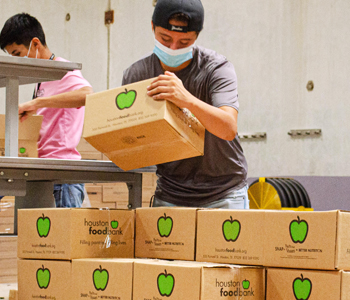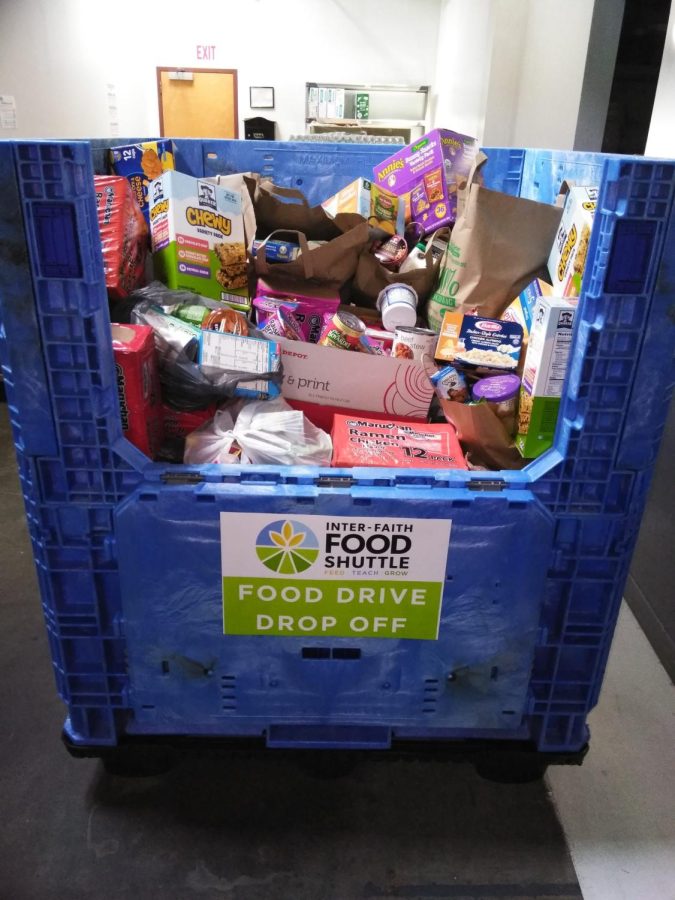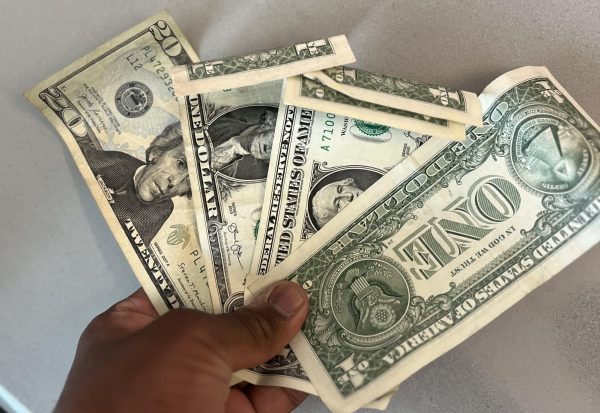Op-Ed: Donating things is NOT donating time
Food drives are one of the most common and advertised donation drives that CVHS also hosts.
Sometimes, it is a little more than irksome to see that the ten hours I spent in the Houston heat cutting down invasive tree species at Discovery Green is found to be equivalent to some kid bringing in a couple boxes of soap their mom bought at Costco the night before. Not that donating personal hygiene goods is not a very important matter in and of itself, but the notion of getting volunteer hours for something that isn’t based on time investment whatsoever doesn’t sit right. Especially when that investment is rather financial.
In fact, it is an undeniable problem in countless high schools, CVHS in particular, where donations are deemed as volunteer efforts and signed hour slips are handed out for work that is neither meaningful nor direct. This issue has led to a devaluation of volunteer work and an erosion of the purpose of volunteerism, which is to give back to one’s community through philanthropic service.
The purpose of volunteering in the first place is based on altruism and effort to do good proactively that can help develop the character of students and teach them the importance of giving back to their communities. It provides an opportunity for students to develop leadership skills and learn how to work as part of a team. Volunteering reflects good habits of a person, boosts self-confidence, reduces stress and improves overall mental health, and it even has physical health benefits. Considering how colleges and universities look for students who are well-rounded and have a record of community service, volunteering is an excellent way to demonstrate this, making it clear why high schools put so much value in these efforts. However, it may have inadvertently caused volunteering to become twisted in a more selfish manner.
Throughout the year, CVHS holds a number of donation drives, ranging from children’s toys to feminine hygiene products to pantry goods, with the advertisement of every one to two products equating to one volunteer hour given. Usually, these donation hours get some sort of cap; however, when the maximum is still more than fifty hours possible, it doesn’t become all that restricting. While these efforts do contribute to the community, they are not a substitute for actual physical volunteer work. Accepting donations as volunteer hours can create a situation where students are not actively engaging with their communities and are instead just purchasing bulk goods. This also creates a barrier to entry for students who may not have the financial resources to donate, leading to a discrepancy in the number of hours volunteered by different students, a textbook pay-to-play situation.
Additionally, many school clubs hand out volunteer hours for work that is not directly impactful or meaningful to the community. For example, participating in games or selling tickets to school events is not the same as volunteering at a local shelter or food bank. This arbitrary handing out of volunteer hours can create a culture where volunteer work is seen as a means to an end, rather than a genuine effort to make a difference. This trend is particularly concerning, because it undermines the purpose of volunteerism. Volunteer work is meant to be selfless and driven by a desire to improve the lives of others, but when volunteer hours are handed out willy-nilly without any regard for legitimate impacts, it devalues the hard work of those who are genuinely engaged in volunteerism. It instead makes any sort of participating in clubs something students are “volunteering” for when, in reality, being part of a club should automatically mean some sort of expectation of engagement or participation just to constitute one’s status as a club member in the first place.

The solution to this problem lies in encouraging students to engage in purposeful volunteer work, and for schools to recognize and reward these efforts appropriately. Rather than focusing solely on raising donations or groundless volunteer hour distributions, schools should encourage students to volunteer their time and energy in ways that directly benefit their communities and target social initiatives. This can include greater publication of out-of-school volunteer opportunities like local food banks or homeless shelters, participating in school clean-up efforts or working with people of local charities to support those in need, and emphasizing genuine efforts to be put in.
However, this doesn’t necessarily mean schools or clubs ought to entirely eliminate a reward system for donating. Although being altruistically based would be ideal, most people aren’t genuinely motivated by the good of their hearts in reality, so having no sort of payout could be counterproductive to the rate of participation in donation drives. Instead, it would be more beneficial for schools to set a holistic cap on hours possible for all donation drives, since some clubs create greater arbitrary maximums than others, and enforce a limit no greater than ten hours regardless of extra quantities donated.
It would also be a better alternative for clubs to create a different reward system over hours, similar to how in elementary schools, there would be Box Top competitions among classes where the class who donated the most Box Tops would get a pizza party or class reward. This way, the reward for donating doesn’t have to be so independently financially based and can also create greater cohesive participation due to team efforts and added competitive effects.
Only through this is it possible to steer away from the numbers-focused system of hours motivating performative or misleading “volunteer work,” helping to actually cultivate a culture of responsible leadership and make a sincere difference in our communities, so that way, getting volunteer hours can actually reflect what it means: hours spent volunteering.
Your donation will support the student journalists of Carnegie Vanguard High School. Your contribution will allow us to cover our annual website hosting costs and fund field trips, competition fees, and equipment. We appreciate your support!

Cindy Cui is a senior at CVHS. In her free time, she enjoys cooking for her friends and family. On the weekends, she also enjoys playing tennis at night...








Mayra • Mar 26, 2023 at 6:23 pm
Omg u ate